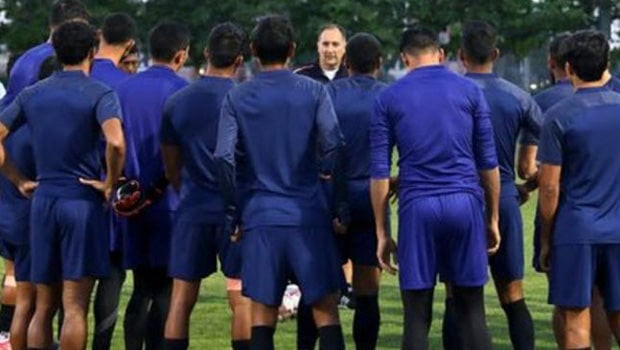In a forthright conversation with RevSportz from his London mansion, Lalit Modi, the architect behind the Indian Premier League (IPL), opened up about his long-standing but ultimately thwarted vision for revolutionising Indian football. Despite his monumental success in transforming cricket, Modi admitted that his ambitions for football have been repeatedly stonewalled by systemic challenges.
“Yes, I did,” Modi affirmed when asked if he once envisioned a football league akin to the IPL. He recalled his early broadcasting days at ESPN, where creating and curating compelling sports content was his priority. “When we look at our country, the easiest thing to do is kick a ball around, and it’s the cheapest sport to play,” he said, highlighting football’s accessibility.
Yet, the sport’s mass potential has remained largely untapped. “I’m sure in a country like ours, we must have great talent, but nobody’s able to nurture them and find them,” Modi said, expressing disbelief that India, in 2025, still lacks a strong presence in global football.
Modi drew a sharp contrast between the IPL’s success and football’s stagnation. “IPL was not international. IPL was homegrown,” he noted, pointing out how skepticism greeted the league’s inception. “They don’t watch Ranji Trophy… Here, Lalit Modi is going out there and creating something that nobody will want to watch.”
His earlier attempt at launching the Indian Cricket League (ICL) also fizzled, but it laid groundwork. “ICL had too much money. It was a broadcaster that we couldn’t compete with,” he said, adding, “I own the brand ICL… It was a brand that I started too early.”
Modi’s ambitions extended beyond cricket. He had signed agreements with Japan’s J-League and intended to launch a domestic football league. But political interference halted progress. “Everybody wants a kickback. Everybody is saying, I will not allow you to do it,” he lamented.
He stressed that Indian football faces deep-rooted structural issues. “With football worldwide, it’s a different model, and to change that model is impossible,” he said, referring to the legacy club culture and its incompatibility with the IPL-style franchise system.
While acknowledging India’s footballing heritage in states like Bengal, Goa, and the Northeast, Modi was blunt: “We have not been able to have players who are global enough. It’s a horse before the cart.”
Ultimately, his assessment was grim. “Football is not going to happen in India,” he declared, adding that Kabaddi might be the next best hope.
For Modi, who revolutionised Indian cricket, the failure to replicate that success in football is a lingering frustration—a dream derailed by red tape, tradition, and structural mismatch.


























